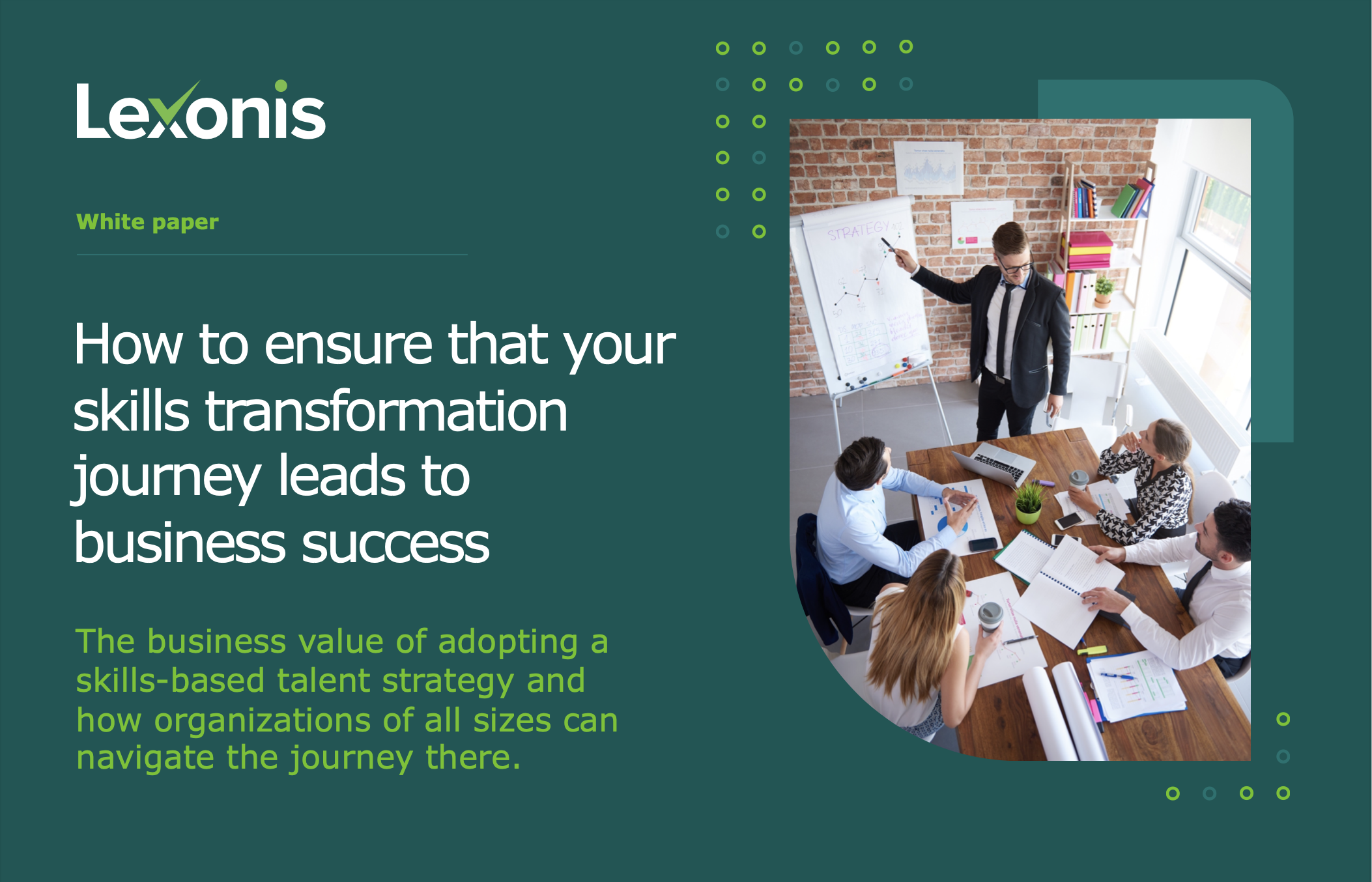In today’s rapidly changing business landscape, organizations must adapt to survive and thrive. One crucial adaptation is shifting from a traditional job-focused approach to a skills-based approach. In this blog post, we will explore the key steps an organization can take to become skills-based and ensure its transformation journey leads to business success.
Anchoring Your Skills Transformation
The first step on the journey to a skills-based organization is to identify the real business imperatives that such an approach will address. This step involves pinpointing specific business challenges that require a skills-based solution. For instance, improving job retention and recruitment processes, providing employees with clear career development opportunities, ensuring that the business has the skills to fulfil its business strategy. Identifying these challenges is crucial as it anchors the skills-based strategy in the real needs of the business and aligns it with financial metrics.
Navigating the Landscape of Skills, Taxonomies and Frameworks
The choice of the approach to define skills and competencies is vital. Organizations can opt for a skill taxonomy, skill ontology, skill cloud, or a combination of these. Each approach has its strengths and weaknesses. For instance, a skill cloud provides skill names but lacks descriptions and proficiency levels. The choice of approach should align with the organization’s goals and challenges.
Preparing for Tomorrow
The pace of change in the workplace continues to accelerate. Identifying future skills requires a clear understanding of the organization’s business strategy and market trends. Skills forecasting is an ongoing process that considers market changes and evolving technologies, ensuring the organization remains prepared for the future.
Assessing Capability and Bridging Skill Gaps
Assessing and validating employee skills and competencies is crucial. Historically, skills data was often saved in spreadsheets or not collected at all. Today, technology allows organizations to assess skills at scale. Whether assessing individual or organizational skills gaps, proficiency levels and job role definitions are essential.
Leveraging Skills for Enhanced Talent Management
Skills data captured through assessments can significantly impact Talent Management applications, including:
- Learning and Development: A skills-based approach to L&D optimizes investments and fosters employee engagement.
- Talent Acquisition: Skills-based hiring minimizes bias and broadens the talent pool.
- Succession Planning: Skills data aids in the identification of future leaders.
- Talent Mobility: Skills-based mobility taps into hidden talents and promotes development.
Change Management, The Foundation for Skills Transformation
The success of a skills project often hinges on effective change management. Good change management practices involve more than communication; they require executive sponsorship and a structured approach. Change management models such as ADKAR can help ensure Awareness, Desire, Knowledge, Ability, and Reinforcement throughout the transformation.
Take the Initial Step on The Skills Journey
To embark on your skills journey, start with a well-defined plan that incorporates all the steps mentioned above. A clear roadmap will guide your organization towards becoming a skills-based powerhouse.
Conclusion
Becoming a skills-based organization is a strategic move that can drive business success in a rapidly evolving world. By following these key steps and committing to effective change management, your organization can thrive in the knowledge economy and remain competitive in the marketplace.
Learn more about how to successfully navigate your organization’s skills journey by downloading the Lexonis white paper ‘How to ensure that your skills transformation journey leads to business success’.



